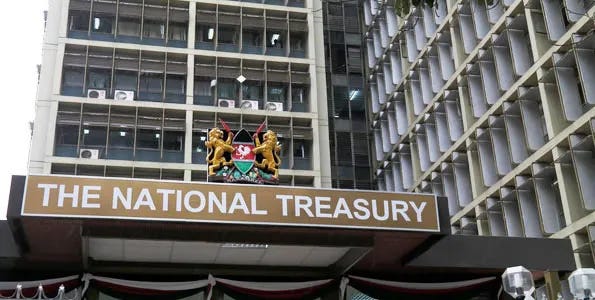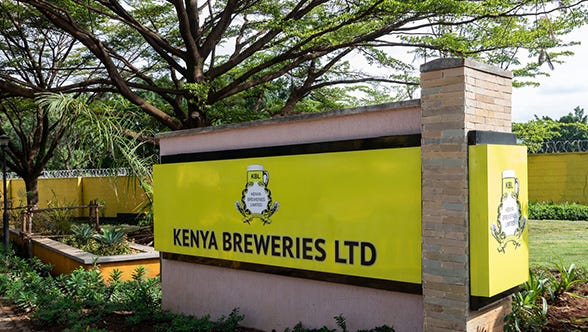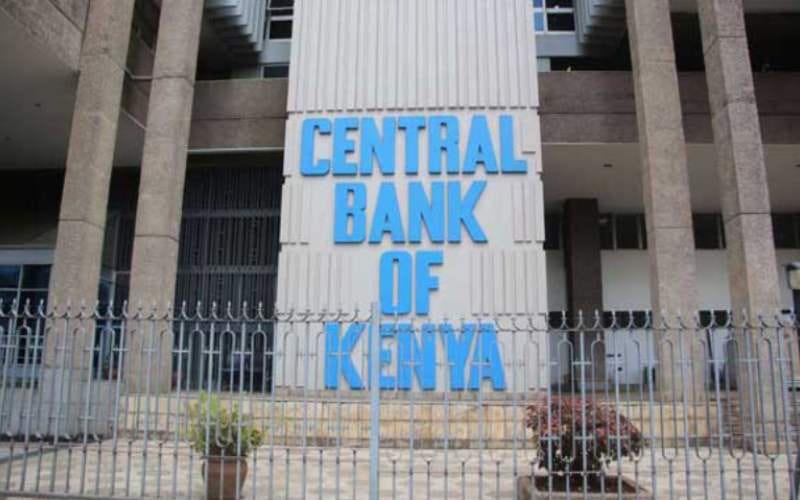Highlights of The Finance Bill 2023
The Finance Bill, 2023 was tabled to the National Assembly on 04 May 2023 for the first reading.
The Bill proposes to amend the following Laws: Income Tax Act (“ITA”), Value Added Tax Act, 2013 (“VAT Act”), Excise Duty Act, 2015, Tax Appeals Tribunal Act (“TAT Act”), Tax Procedures Act (“TPA”), the Miscellaneous Fees and Levies Act, 2016 (“MFLA”), Betting, Gaming and Lotteries Act, Kenya Road Board Act,1999, Kenya Revenue Act, 1995, Employment Act, 2007, Retirement Benefits Act, Unclaimed Financial Assets Act, 2011 and the Statutory Instruments Act, 2013.
Highlights of the Bill
The Bill suggests a graduated PAYE tax rate of 35% for individuals earning Ksh 500,000 or more.
The Bill proposes a 3.0% deduction from an individual's basic salary, which will be directed toward the National Housing Development Fund. The employer will also contribute an additional 3.0% towards the fund, effectively matching the employee's contribution. The Bill limits the sum of both contributions to KES 5000.
The Bill proposes to amend the Income Tax Act and revise the turnover tax rate from the current 1.0% to 3.0%. Additionally, it proposes expanding the turnover tax band from Kes 1M - 50M to Kes 500,000 - Kes 15M.
The Bill proposes that anyone who advances a tax dispute to the Tax Appeals Tribunal must provide a deposit equal to 20.0% of the disputed amount, or provide a security that is equivalent in value to the disputed amount, to the Commissioner.
The introduction of Digital Assets Tax targeting anyone who owns a platform or facilitates the exchange or transfer of digital assets. Treasury's list of digital assets includes cryptocurrencies, token code, non-fungible tokens, or any other token of similar nature.
The Bill proposes a 15% withholding tax on income earned by content creators.
Click here to read highlights from PWC
The National Assembly is inviting comments. Deadline for comments is May 20th, 2023 5:00pm. Send comments to
email: clerk.nationalassembly@parliament.go.ke; Or
Address: Clerk of Nation Assembly P.O.Box 41842-00100ACQUISITIONS
Sri Lankan Firm Browns Investment Plc Acquires Undisclosed Stake in James Finlay Kenya
Sri Lankan firm Browns Investment Plc purchased an undisclosed stake in James Finlay Kenya, a multinational tea firm with farms in Kericho and Bomet counties.
Note: The transaction includes an innovative feature that will see locals hold a 15 percent stake in the company through a co-operative, a move aimed at promoting community involvement in the firm's operations.As part of the deal,
Finlay will retain ownership of the Saosa tea extraction facility, which will be used to process green leaves from out-growers.
The firm's managing director, Simeon Hutchinson, confirmed that the agreement is set to be completed within the next few months.
The acquisition comes after Finlay Kenya faced prolonged disputes with local communities, trade unions, and county governments over the mechanization of its tea estates, which led to significant job losses. However, the deal will allow the company to strengthen its ties with the local community, ensuring that their input is taken into account in the decision-making process.
According to James Woodrow, Finlays’ group MD, the selection process for the buyer was rigorous, prioritizing the best interests of James Finlay Kenya and its community. The company's management is confident that the sale to Browns Investment Plc will ensure long-term growth for the business.
"As part of the sales agreement, Browns and Finlays have mutually agreed to acknowledge the long-standing support of the local community by selling 15 percent of shares in James Finlay Kenya to a locally owned co-operative," the firm said.
ECONOMY
1. The World Bank to provide a KES 40.8 billion ($300 million) interest-free loan to Kenya Power
In a bid to help Kenya Power pay its debts, upgrade its transmission network, and expand the national grid, the World Bank has announced that it will provide the utility with a KES 40.8 billion ($300 million) interest-free loan.
Kenya Power has been struggling with a debt of KES 87.5 billion owed to electricity producers and other suppliers as of June 2022 and had taken out loans totaling Sh103.84 billion from local and foreign banks in the same period.
"The Program will also support gradual clearing of outstanding dues of KPLC to other sector agencies such as KETRACO and REREC towards achieving financially sustainable sector operations. KenGen, IPPs, and other suppliers will benefit from reduced arrears.” - The World Bank
As of June last year, Kenya Power's debt to KenGen for electricity supplies amounted to Sh22.93 billion, making it the most substantial amount owed to a single power producer.
2. Treasury has raised the target for domestic borrowing by KES 103.7 billion in the 2023-24 financial year
The Treasury raised the target for domestic borrowing by KES 103.7 billion in the upcoming 2023-24 financial year. This decision was made in an effort to offset the projected decline in net foreign financing, which is expected to fall to KES 131.5 billion from KES 395.8 billion in the current fiscal year.
According to the final budget estimates presented by the Treasury in Parliament, net domestic borrowing for the period starting July 1 is set to rise to KES 532 billion from KES 428.3 billion this fiscal year. This represents a significant increase in the amount of local debt that the government plans to take on in the coming year.
The fall in foreign financing is largely due to the heavy maturities of external loans, with the 10-year $2 billion Eurobond borrowed in 2014 being the primary contributor.
As a result, the government has had to turn to domestic borrowing to finance its operations, a trend that is expected to continue in the coming years.
TAX
Kenya Breweries Ltd Faces KES 8.2 Billion Tax Demand After Waiver Revoked by Kenya Revenue Authority
Kenya Breweries Ltd (KBL) is facing a tax demand of KES 8.2 billion from the Kenya Revenue Authority (KRA) that was waived two years ago after lengthy negotiations. KBL, a subsidiary of the global beer giant Diageo, claims in a petition filed before the High Court that the demand is prejudicial because the KRA made the company withdraw a case it had filed before the tax appeals tribunal challenging the excise duty and value-added tax from June 2015 to March 2017.
According to court papers, KBL applied for abandonment of taxes as per Section 37 of the Tax Procedures Act, which was approved in a letter on January 22, 2021. The brewer paid KES 3.5 billion on January 25, and in return, the State abandoned KES 11.16 billion and withdrew the case.
The company claimed that the withdrawal of the appeals was made in the belief that the tax issues had been fully settled and that the appeals were spent upon payment of the KES 3.5 billion.
However, the KRA has now issued a tax demand of KES 8.2 billion, arguing that the initial waiver was made in error. KBL has petitioned the High Court to declare the demand unlawful, arguing that the company acted in good faith by withdrawing the case and paying the agreed amount.
Central Bank of Kenya Mandates QR Code Issuance by Banks and Telcos for Digital Payments
In a move aimed at driving the adoption of digital payments, the Central Bank of Kenya (CBK) has mandated banks, telcos, and other payment service providers under its regulation to issue Quick Response (QR) codes. These codes will enable consumers and businesses to accept digital payments easily and seamlessly.
The CBK has issued the Kenya Quick Response Code Standard 2023, which will guide the process of QR code issuance by payment agents. QR codes are an upgrade from standard barcodes, providing additional information that facilitates digital payments to mobile phones.
This initiative is expected to create convenience for both merchants and customers.
Customers will only need to scan the QR codes to make payments to merchants who will provide the codes at payment points.
At the merchant point of sale, customers will be presented with the option to pay using a QR code, which will be scanned using their smartphone applications provided by payment service providers.
WHAT YOU MIGHT HAVE MISSED
Businesses can now access up to Sh400,000 Fuliza overdraft service
Safaricom has partnered with KCB Bank Kenya to roll out Fuliza ya Biashara, a service allowing business owners to access unsecured credit by overdrawing through their M-Pesa business tills to cover short-term cashflow shortfalls.
The telco said the service would advance an overdraft of between KES1,000 to KES 400,000, with an interest-free period of two days. Traders will be allowed to draw multiple overdrafts for as long as it is within their limits.
The service attracts a two percent daily access fee for up to 29 days and a daily maintenance fee between KES 12 and kes 250, depending on the amount tapped.
I&M Bank Increases Personal Loan Limit for Salaried Customers to KES 10 Million without Collateral
I&M Bank has doubled the limit for personal loans without collateral for its salaried customers from KES 5 million to KES 10 million. This move was announced by the lender on Wednesday, and the changes will be effective from April 1st.
In addition to doubling the loan limit, I&M Bank has also increased the period for serving personal unsecured loans from a maximum of 60 months to 90 months. According to the bank, this change is a response to the growing demand from its salaried clients who are seeking greater financial support to achieve their investment and other financial goals.
Grit Real Estate Income Group Limited to Expand in Kenya with Upcoming Hospital and Data Centre Projects
Mauritius-based Grit Real Estate Income Group Limited has announced plans to expand its Kenyan footprint via a hospital and data center projects whose construction will start later this year. According to Business Daily, the company plans to build a hospital along Ngong Road in the third quarter of the year and two data centers in Tatu City and Mlolongo along Mombasa Road.
The National Horticulture Taskforce (NHT) has launched Good Agricultural Practice Guides for avocados, beans, and peas that compel exporters to comply with the standards demanded by destination markets to avoid bans.
This is amid rising levels of interception tied to the harvest of immature crops, storage and transportation, disease and pest controls, and hygiene, restricting access to the export markets and reducing the country’s competitiveness.







